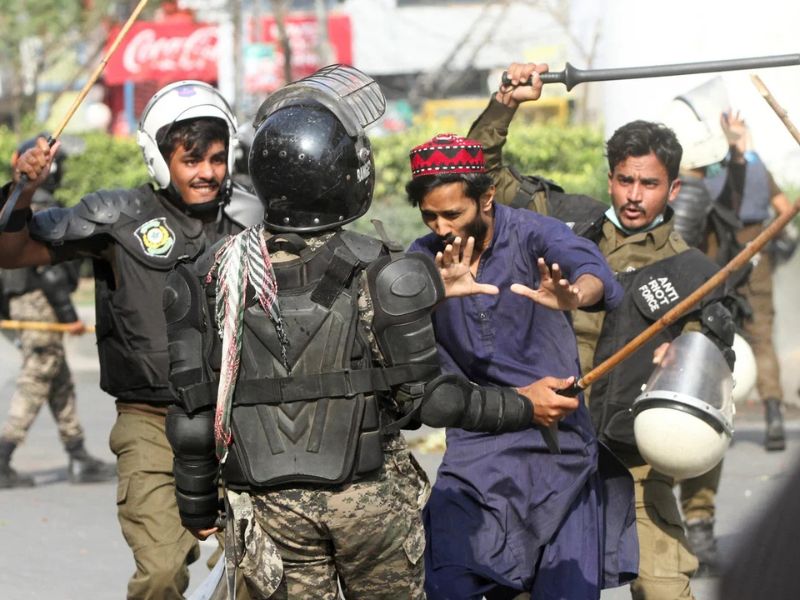Punjab Moves to Ban TLP as Years of Religious Violence Reach Breaking Point

The Punjab government is moving to ban Tehreek-e-Labbaik Pakistan, or TLP, a far-right religious party that follows the Barelvi school of Sunni Islam.
Formed in 2015 by Khadim Hussain Rizvi and now led by his son Saad Rizvi, the group has built its identity on emotional street politics and violence in the name of religion. From day one, it has relied on fear, anger, and mob power to gain influence.
TLP entered the spotlight after openly celebrating Mumtaz Qadri, the man who killed Punjab Governor Salman Taseer in 2011 for defending a Christian woman accused of blasphemy. Instead of rejecting this crime, the party glorified the murderer. The moment clearly showed that TLP stood for extremism, intolerance, and a rejection of the rule of law.
Since then, TLP has weaponized Pakistan’s blasphemy laws to stir chaos and hatred. Its rallies and protests often turn violent, leading to attacks on police, government property, and even ordinary citizens. The group has repeatedly demanded death sentences for people accused of blasphemy, turning public spaces into grounds of fear and bloodshed.
Religious minorities, especially Christians and Ahmadis, have suffered the most from TLP’s hate-driven campaigns. The 2023 Jaranwala tragedy is a painful example. After the spread of blasphemy rumors, mobs inspired by extremist propaganda destroyed 26 churches, burned down four Christian neighborhoods, and displaced more than 400 families. Even then, the state failed to act decisively against those responsible, and that silence strengthened TLP further.
Now, the group has again returned to the streets under a new excuse. This time, it organized the “Al-Aqsa Gaza March” to reject a peace plan announced by U.S. President Donald Trump. Though the party claimed it was showing solidarity with Palestinians, the protest quickly turned violent. Thousands of TLP supporters clashed with police, broke barriers, and attacked law enforcement officials. One policeman was killed and many others were injured. Authorities later detained more than 2,700 TLP workers and placed thousands on an exit control list.
This wave of violence has once again exposed how TLP damages the state, spreading fear, attacking police, blocking highways, and challenging government authorities. Each time the state hesitated, the group became more confident in using religion as a shield for its violence.
This time, however, the Punjab government, led by Chief Minister Maryam Nawaz Sharif, has decided to take bold action. The province has recommended a ban on TLP, describing it as an extremist organization. The leadership is being added to the Fourth Schedule of the Anti-Terrorism Act, and mass arrests are underway.
For years, religious minorities in Pakistan have lived under the shadow of groups like TLP. The Jaranwala attacks were not an accident; they were the result of years of tolerance toward extremism. Twenty-six churches were reduced to ashes; four neighborhoods were erased; 400 families were destroyed. If the state had acted then, Pakistan might not have reached this crisis today.
To read more news stories, visit the ICC Newsroom. For interviews, please email [email protected]. To support ICC’s work around the world, please give to our Where Most Needed Fund.
